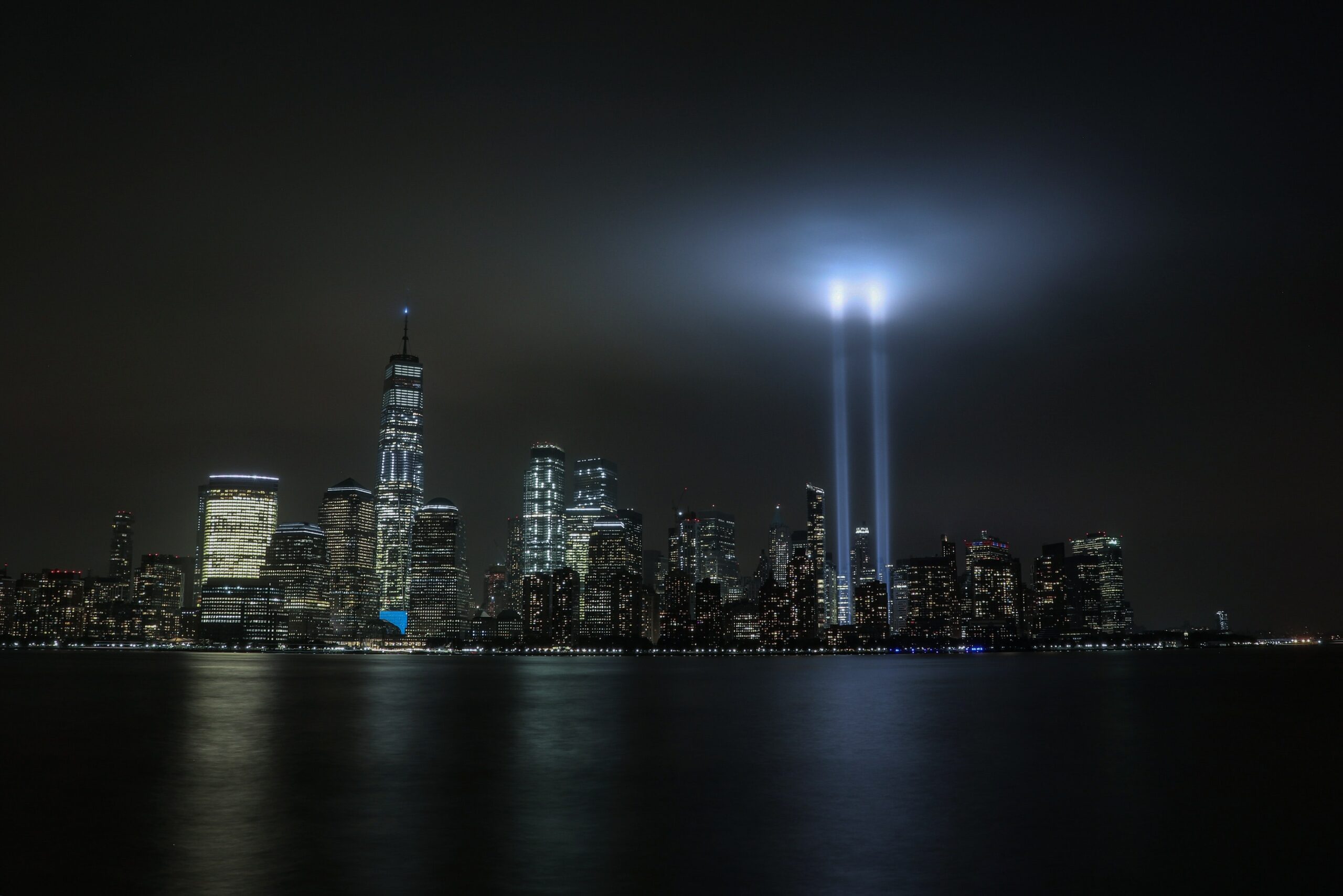The eleventh day of September in the year 2001, though over two decades old, is a day that many recall and relive in an abundance of ways. Implemented by a fundamental and extremist religious group called Al-Qaeda and orchestrated by their late leader Osama bin Laden, the 9/11 Terror Attacks had made their marks on the hearts and minds of all the world’s people. A devastating and malicious act done several years ago, which has left time for people to distort or become numb to the events that had transpired. This leaves us with an essential question about this notorious day. How should we remember 9/11?
9/11 is a day that we- whether directly affected or not- should remember with a distinct quietness (to not trigger anyone involved), recognizing how it impacts us at current, recognizing the true circumstances that had caused it, and not letting it be an excuse for bigotry. The impacts, true circumstances, and how to not let it lead to unreasoned loathing, will be further explained down below.
To This Day
The impacts of this terrible event are present and clear to this day. Whether you or someone you know had been there during the attacks or in the aftermath of the wreckage, life as once known has never been the same. Even if one had come out with no complications, the event no doubt still left a mark in some way. How could it not?
Two types of impacts that this tragedy has afflicted are physical impacts and mental impacts.
Physical Impacts
Like the group who had dealt the fatal blows to many, several ongoing physical effects from the terrorist attack came without discrimination or warning.
Only one month after this life-altering day, nearly 50%of those who had lived by what is now called the World Trade Center, reported having troubles with their noses, throats, and ears. These problems would persist years after the fact, one of which being the development of asthma in 5% along with other breathing difficulties from their exposure to the dust the wreckage had left behind.
Asthma, though a fairly well-known condition, is a life-changing one and can level in severity. Those who bear it struggle with shortness of breath, coughing fits, and a heavy tightness in the chest. It is treated but this does mean that it can be cured. If untreated or treated without urgency, the condition may be fatal.
For those who did not develop asthma or any other respiratory affliction, hundreds of other diseases and conditions seemed to take their place: various kinds of cancers, other aerodigestive disorders, and musculoskeletal disorders.
All these conditions are potentially or bluntly fatal as well as difficult to live with, they worsen lives without provocation and strike without discrimination. Once they are gotten, they cannot be stopped from making their presence known in the body. It is because of these terrorist attacks that people who had lived near the devastation have either succumbed to their condition or gone on with strife to live another day.
Mental Impacts
Like all traumatic events, alongside the physical complications that come with them, there are bound mental ones as well.
Inside a study done sixteen months after 9/11, it had been found that those suffering a loss from the event and held low income were twice as likely to develop a mental illness or even several since most often coincide with others. Three of these illnesses are the most common: depression, anxiety, and PTSD.
Illnesses of the mind, unlike emotions, do not fade out with time. Similar to their physical counterparts, they not only make life difficult to bear and are potentially fatal, but they also are permanent. They can be treated but not defeated, lasting lifetimes, and even into future generations as they can be inherited.
The mental impacts are abundant and can be felt as well as seen to this very day in those heavily involved in the attacks or those who have suffered because of them. They can never be unfelt and like the tragic day, will always be remembered.
Never Justified
The outrage and hatred that had sparked from 9/11, though far less than it had been, still is present today.
In the aftermath of the attacks, people had been coursing with an abundance of emotions from fear to rage. They had wanted someone to blame and though most had directed their spite toward those responsible, there had been some to use the attacks as a cover for their bigotry. And to this day, citing the attack as a reason for their loathing.
This is inexcusable and like the attacks themselves, can never be justified. We should not misplace our anger or use it as a means to target others. To do so is not only detrimental to our character but the world around us. In the ongoing wake of such a horror, we do not need separation but unification, to truly mend.
Remembering
9/11 has been a terrible occurrence within the world and one that will continue to affect us until the end of time. It is to be remembered quietly, thoughtfully and cited not as a reason for hatred. Its physical and mental impacts are as present as ever, even after over two decades have passed. They may have been a result of something past, but this does not mean that they will fade.

